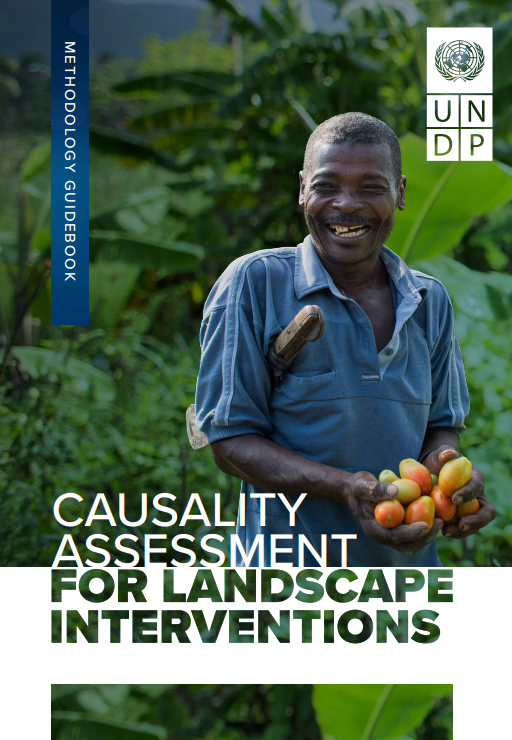Causality Assessment for Landscape Interventions: Methodology Guidebook
The Causality Assessment for Landscape Interventions (CALI) methodology supports adaptive management through promoting continuous, participatory reflection on the effectiveness of project interventions in reducing deforestation at landscape or jurisdictional level. The methodology proposed in this guidebook provides an integrated, systems-informed approach for project managers and their teams to continuously reflect on the validity of their theory of change, with a strong emphasis on unpacking causality between results at different levels.
An introductory chapter illustrates the rationale that brought to the development of CALI, presents the specific objectives of the assessment, and provides an overview of the methodology and its limitations. The following chapter on prerequisites details the minimum requirements for a project team to decide to engage in the assessment. The rest of the guidebook illustrates a detailed process for conducting the assessment at different stages of the project lifecycle: at project start and during implementation.
The cornerstone of the CALI methodology is the engagement of key landscape stakeholders as partners, which is aimed to uncover insights on relevant system dynamics, while discussing their role in the theory of change of the project. The findings of the assessment will allow project managers and their teams to adopt corrective and/or catalysing actions to increase the chances of success of the project. For more information on the CALI methodology visit the webpage here.
